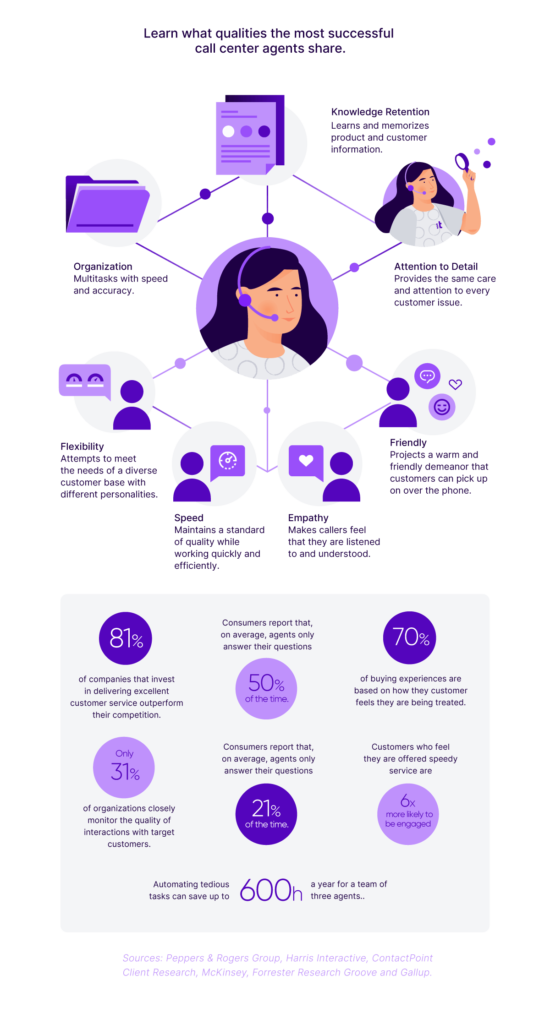Covid-19 has hit many industries hard, and included in those hard-hit are the call centers. At the dawn of the pandemic, many workers, especially overseas ones, needed to be laid off or furloughed temporarily.
But with every adversity, to survive, not only to keep the company but to sustain their agents and their family through these trying times, call centers have managed and are still working to conquer and survive.
This article will talk to you about how they did it, especially in their hiring process when everyone was reduced to using technology to combat this ever-looming and invisible virus.
Virtual Hiring: Novel Coronavirus and the Call Center Industry
Two years in and various human resource and managing departments are still grappling and looking for ways to navigate the workforce in this unpredictable environment.
There was hope for going back to normalcy, but 2021 brought the reality of the virus continuously replicating into variants that can be more dangerous than the next. For a call center to meet business ends and ensure the safety of its employee, they shift and adjust.
Agents to Work Remotely
One of the things call centers had to do to ensure that businesses get back to usual and that their employees are safe is to shift from a location-based work to a work-from-home setup. The human resource department did so by using different technologies and by making essentially everything automated. Support for workers also came with access to company information from home and delivered every tool and equipment right at their doorsteps.
It is easier than done, but with all the things human resources did in response to the crisis, many call centers are still allowing their employees to work from home and are in no hurry to get them back to the office for their safety. Especially call centers that employ agents overseas.
Changing of the Call Center Layout
Call centers traditionally designed to utilize every space possible for productivity have now faced the challenge of implementing social distancing rules inside their offices. Many of their call center agents are grappling with issues such as lack of internet connections in their respective homes, and to keep their jobs, they have no choice but to work inside the office buildings. Luckily, some of them are still choosing to work from home and thus making the possibility of social distancing possible even though such offices are not designed to do so.
You might also like: Best Recruiting Websites for Employers
Different Communication Channels
One of the things that many people should be able to do to work from home is to communicate effectively, and this is more true and essential for call center agents who work at home.
Navigating the first few days and even weeks of call center work was a challenge, but through the leadership of both the HR, the IT, and the management department, call center companies to have it possible to get past that. One of the reasons is effective communication between a leader and their team.
Without effective communication, employees are ill-informed, which would lead to a significant decrease in business revenue for the call center company. Through lines of communications such as instant messaging through Skype, daily meetings, and open one-to-one meetings, call centers can survive uncertain times. They would continue to do so with all the technological improvements in different communication channels.
Review Systems
To ensure productivity and ensure that quotas are met, accountability and management tools are used for home agents. Such online tools can monitor their progress and do with their time. Tools like these provide accurate time analytics and reporting.
Real-time reporting tools keep track of everything a home agent is doing in their working time, whether who is in a dead call, on pause, and how many agents are out of calls. Many call centers survived using such software and the more advanced emails at their team leaders’ progress right away.
At this time, many call center companies also utilize quality measuring and other scoring software. Although it is important not to micromanage an employee, you need to know what happened with other lacking calls to present feedback when it needs to be given.
Since most of the calls taken are calls overseas with different state guidelines and sales practices, review systems such as state filters and dynamic scripting make it possible for agents working at home to comply with different rules and laws when necessary.
To flip the coin on real-time assessment, call centers also utilized the wonders of historical reporting to survive the work from home set up. An example is the time clock monitoring and the agent performance monitoring.
The former deals with auditing and keeping an eye on every call and computer movement in your agent’s time. In contrast, the latter deals with the logistics like the number of calls in a given day, the number of sales they managed to do, and how much they were able to make if they did procure a sale.
Shift to Virtual Hiring
One of the things that had to be changed for call center companies to survive in the pandemic is changing the way they recruit new agents. Posting job vacancies on job search sites and social media to fill in empty positions is still working but not so effective anymore.
Although the pandemic undermined some usual hiring practices that have proven effective, having this time for innovation and creativity will benefit different call center HR departments to adapt to every challenge.
One of the things that needed to change is the in-person screening practices that most call centers at home and overseas are used to. To find talent in this environment of Covid-19 uncertainties, call centers need to tweak their recruiting strategies and techniques overnight. They did it by recruiting entirely online.
How Call Centers Can Overcome Hiring Challenges with Virtual Hiring
Virtual interviewing and recruiting had proven to be effective that at least 23 percent of hiring leaders in 1,140 respondents in a study are planning to move every recruiting business in the future online. Like the senior vice president of HR in recruitment firm Addison Group, Peg Buchenroth had been saying, virtual interviews aren’t going away.
There are many benefits to video interviewing. One of them is the efficiency it brings, especially for companies like call centers that usually have high volumes of applications to go through. This cut time in the entire hiring process significantly.
Nothing will ever beat personal and live engagement. Still, to keep everyone safe and continue to the job as well as the life of a company, many call centers are needed to adapt and embrace the gifts of technology which they essentially already utilized when everything was still the way it was.
Benefits of Virtual Interview and Virtual Hiring
To account for the ever-changing public health guidelines, virtual recruiting and interviews are adopted by many human resource companies, especially for call centers. Aside from following public health protocols, here are some other benefits of online recruiting.

Access to Larger Labor Pool
With the recruiting now done virtually, human resource departments in different call centers can presently reach their talent poll to extend globally. This is especially true for smaller call center companies that were restricted to recruiting locally before the pandemic. We can now see upcoming enterprises advertising on various sites online; of course, logistics and other effects will follow when they hire.
Ensures Business As Usual
Because of the high demand for call center agents, most call centers are generally hiring throughout the year. To keep up with the pace of employees resigning and needing to fill their roles as soon as possible, virtual recruitment ensures that business continues amidst this pandemic. As long as the candidate or potentials has stable internet connections, recruiting can be done virtually from the interview to the various tests.
Saves Times and Schedules
A very significant benefit of recruiting virtually is that it cut the time of the application process. Not only did it give the HR department more manageable and more time in screening candidates’ applications, but online tools made it easy to rank and file data based on the applicant’s performance. Interviews are also now efficiently conducted online.
Reduced Real Estate and Other Expense
Another benefit for both the applicant and the employer is that virtual recruiting can save money. Real estate expenses for job fair venues are now reduced to Zoom meetings for the employers.
At the same time, applicants gain the benefits of simply keeping safe and sound, conveniently applying from their home. The savings will add up for call centers that regularly hire since virtual recruiting are leaps and bounds cheaper than the physical thing.
Employee Retention
One of the things that are true for call centers is that their employee turnover is usually high, which could lead to many losses in the company, which is why call centers generally hire throughout the year. Virtual recruiting practices can counter that problem by choosing the best possible candidates for call center jobs.
Reduces Bias
Keeping a high company culture by recruiting from all walks of life regardless of race, gender, and age is essential. Not only will it foster more creativity and diversity, but it is also known to add up business value in the long run. Premium online resume and curriculum vitae screening tools will reduce personal biases that face-to-face recruitment can sometimes foster.
Reduces Paperwork
With all the printed resumes and different competency tests typically adding up on a day-to-day basis in every HR department across any company, virtual recruiting brought a stop to reduce a considerable amount of paperwork. All tests and resumes are now reviewed online with a few clicks of the mouse. Not only did it reduce the workload for them to tackle other pressing tasks, but it also allowed them to employ sustainable practices that could help with environmental issues.

Candidates Have Better Experience
Virtual hiring made the train ride or the long commute to and fro the job of applications nonexistent. Gone are the days of mass hiring and waiting for a call when all you need to do is utilize virtual tools, and you could inquire about work or ask about your application status in a flash.
Strategies for Effective Virtual Hiring
One of the best strategies to employ for effective virtual hiring is asking the appropriate types of questions. Asking questions can give you a lot of clues to your candidate’s point of view and what they value in being employed for your call center company, especially now that a high percentage of younger generations (which are now entering the workforce) are quitting as they look for the perfect job that values their worth and has a great company culture.
There are three types of questions you should ask: behavioral, situational judgment, and simulation or role-play questions.
The first is behavioral questions that ask answers about a candidate’s past challenges and difficult work experience and how they overcame them. These questions will let you know how well an applicant is in tuned with their problem-solving skills and how they will face a challenge head-on. Questions like “how do you work under pressure” or “how you handle work setbacks” can lead you to the answers you want to hear from them.
The second type of question is situational judgment questions. What you, as a hiring manager, should do is create hypothetical situations in advance and ask how the applicants would approach to solve said problem.
This question will show you their thought process. It will give you a glimpse of their communication skills, emotional intelligence, and whether their behavioral question answers match their problem-solving skills.
The last type of question is the role-play or simulation question that measures their creativity as well as their problem solving and communication skills. Offering feedback at the end will also give you an insight into how much the candidates are willing to learn in the future.
Whereas pen and paper plus multiple interviews are done as part of the hiring process, immediate judgment into the candidate’s skills and intelligence are now utilized mainly to save time in this dire need. Asking questions will give you an in-depth look into their thought process on the spot.

Future Trends for Call Center Hiring Process
The theme for hiring in call centers for 2020 and 2021 is adaptations. The first one is for Covid-19, while the next is working through with its countless variants. With a boom in cases this past few days as 2022 unfolded, here are some future hiring trends we could see as call centers continue to adapt with the tides.
The first one is seeing that working from home will still reign supreme for this year. The Omicron variant of the novel coronavirus has seen waves of new cases rising each day. Thus canceling plans of many companies, including call centers, to return to the four corners of the office or at least adopt a type of hybrid work that cuts working days to be spent at home and the office.
Companies who are also adamant about going back to the office permanently risk high turnover that can lead to problems not just on the staffing but also significantly in the financial aspect.
The Great Resignation, as it has been dumbed, is what awaits companies not open to adapting at least a hybrid work model. Many people are afraid of contracting the virus and passing it on to their families and friends for obvious reasons. 2022 will also deem salary as not just the factor to accepting a job anymore.
The second thing we foresee for the future of call center hiring is the long-needed diversity in the workplace. When 2020 and 2021 were the time to demand inclusivity, 2022 will see to it that it is not just a cry anymore but a must-do and must-have for any hiring company.
There are many benefits to embracing diversity and inclusivity in your company in terms of race, sex, gender, age, and many other aspects. They are open to innovations and have a more comprehensive range of ideas and creativity, thus having better profitability.
A sense of community is one of the leading requirements for Generation Z that will soon occupy most of the entry-level jobs.
Call Center Virtual Hiring Final Thoughts
The last trend is that remote work and virtual hiring are here to stay, albeit with better practices, with all the trial and error companies are doing now. As safe distances from everyone outside of your household is still the most effective way to mitigate and counter the novel coronavirus head-on, almost 84% of employers in the same study have chosen to still conduct interviews and other negotiations using the technology of video conferencing.
Face-to-face engagement is a tough nut to crack and will always be proven effective, although not perfectly, but recruiting and hiring virtually through video will work best for now. Let us know what you think about the virtual hiring trend in call centers in the comment section.

